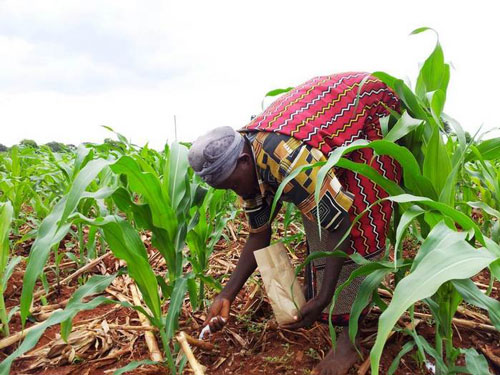By Lwazi Dlamini
Eswatini will continue to rely on imported goods as the low subsidy rates have seen a declining number of beneficiaries of the input subsidy programme.
Due to a lack of resources the country’s input subsidy programme which is intended for small-scale farmers whereby government contributes 50 per cent and the farmer contributes the other 50 per cent of the total input cost only caters for an average of 7 000 farmers on a first-come first-served basis.
According to a report delivered by Honourable Bonginkhosi Dlamini, the Chairperson of the Ministry of Agriculture Portfolio Committee, which was adopted and passed in Parliament on Friday, the low production levels in the country come as a result of the lack of farmers producing fruits and vegetables at commercial or large scale.
 “Majority of the farmers are producing on a small scale which cannot sustain the local demand resulting to high imports. The Ministry together with NAMBoard continues to mobilize farmers to increase their production to large or commercial scale,” reads the report in part.
“Majority of the farmers are producing on a small scale which cannot sustain the local demand resulting to high imports. The Ministry together with NAMBoard continues to mobilize farmers to increase their production to large or commercial scale,” reads the report in part.
ALSO READ: Foreign Affairs Minister, Taiwan Ambassador pledge to stimulate economic growth
The report states that the Ministry of Agriculture should ensure that the next budget cycle complies with the 10 per cent Maputo Declaration.
“Again, the Ministry should increase subsidy rates and the number of beneficiaries to encourage more farming in the country thus reducing the high reliance on imported goods.”
“The Ministry should monitor the strategy of distribution of the farming inputs and also identify places that are suitable for farming and prioritise farmers from there, to increase crop yields (e.g places with adequate rainfall),” the report reads.
THE PORTFOLIO COMMITTEE’S FINDINGS:
– The 10% of the Maputo Declaration has not been met up to date
– The low subsidy rates negatively impact crop output
– The Ministry is understaffed in terms of extension officers and cordon guards, with very poor personnel welfare
– The Ministry’s Yellow Plant is hardly operational and effective in executing the necessary duties


